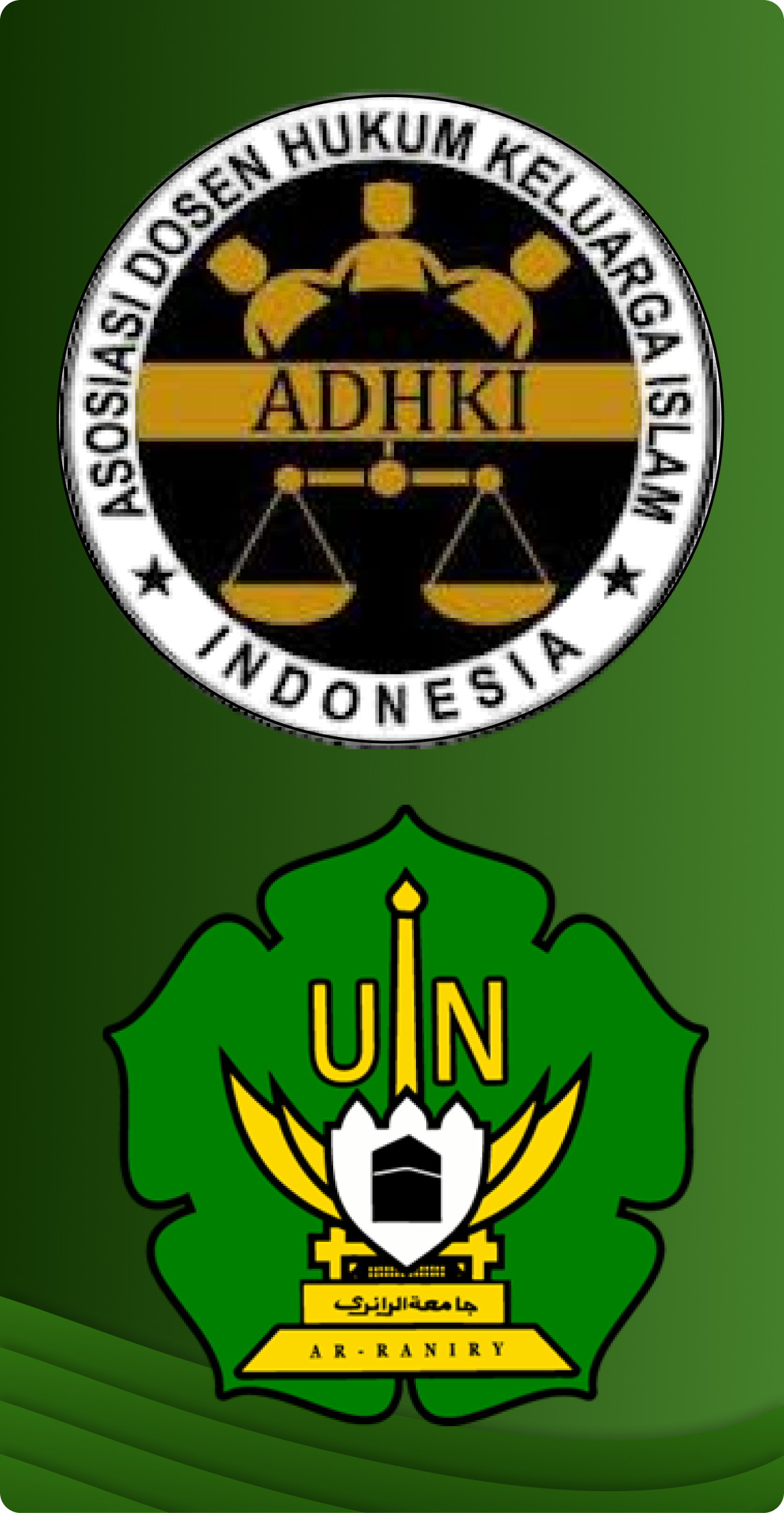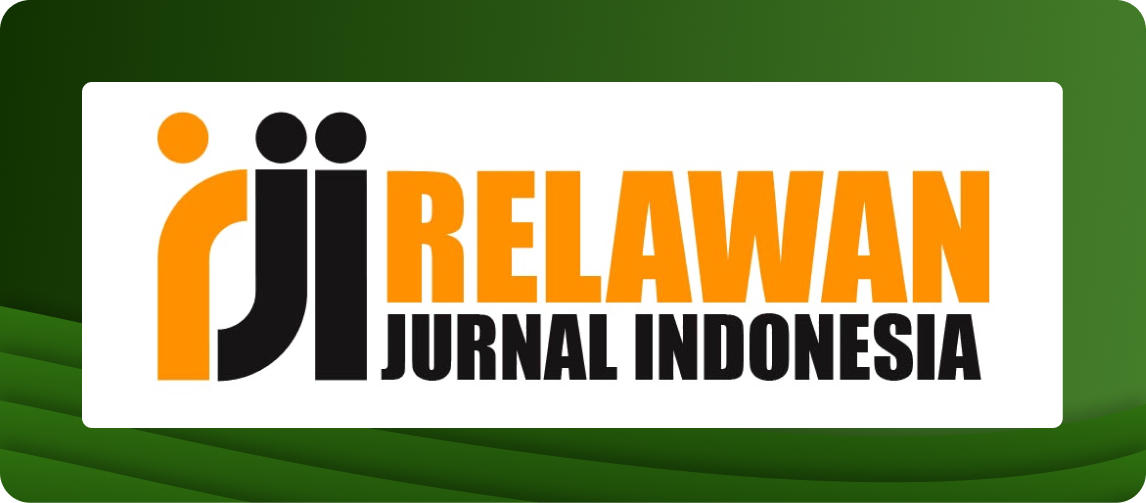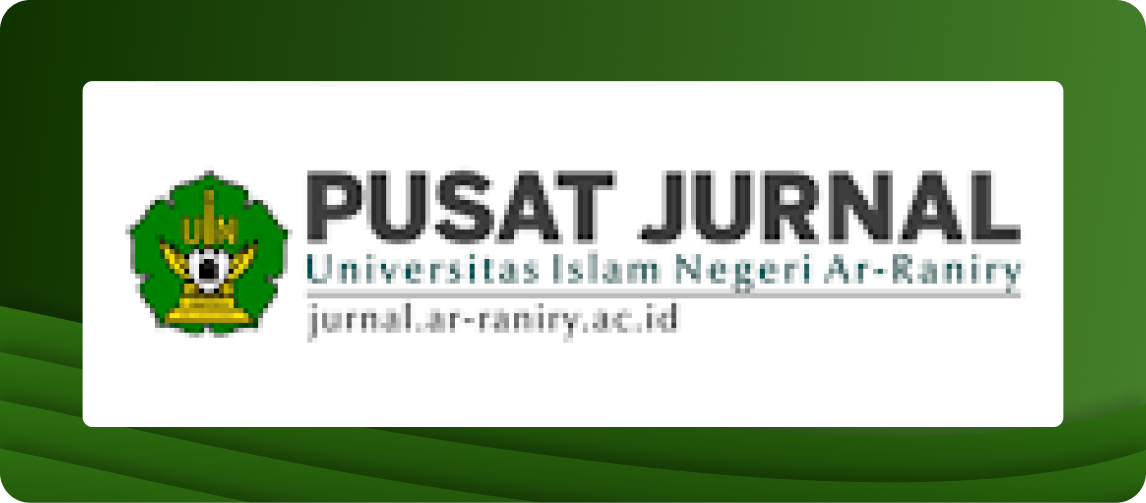Strengthening Muslim Family Faith and the Importance of Da'wah in the Digital Age
Insights from Scholars of Al-Aziziyah Samalanga through the Lens of Islamic Philosophy
DOI:
https://doi.org/10.22373/q48epp30Keywords:
Industrial revolution, resilience of faith, Muslim family, digital technology, Ulama Dayah, Islamic philosophyAbstract
The advancement of technology in the era of the Industrial Revolution 4.0 has significantly expanded access to Islamic knowledge; however, it simultaneously presents challenges related to the imbalance between technological utilization and the reinforcement of the Islamic faith. This study addresses the core issue of Muslim family faith resilience and the critical need for digital da'wah, as perceived by scholars from Al-Aziziyah Islamic Boarding School. Employing a qualitative methodology grounded in Islamic philosophical theory, data were collected through in-depth interviews with key informants, including boarding school leaders, educators, and students. Complementary literature was reviewed from journals, books, and scientific reports. The research was conducted at Dayah Jamiah Al-Aziziyah in Samalanga, Bireuen, Aceh. Findings indicate that strengthening the resilience of aqidah within Muslim families involves multiple strategies, such as leveraging technology and social media as platforms for Islamic learning, alongside maintaining traditional religious instruction through regular taklim assemblies led by teachers and ulama. The boarding school, as a traditional educational institution, plays a pivotal role in effectively disseminating Islamic teachings via social media and online platforms. Furthermore, fortifying aqidah entails rigorous supervision of technology use, effective time management, verification of information, and collaborative efforts among the boarding school, families, and communities, with Al-Aziziyah Samalanga serving as a central hub. From the perspective of the Islamic philosophy, which prioritizes truth and the principles rooted in divine revelation as the ultimate reality, these efforts align with the beneficial aspects of scientific and technological progress. This study contributes an Islamic philosophical framework emphasizing the urgent necessity of digital da'wah to sustain and strengthen the aqidah resilience of Muslim families in the contemporary digital era.
References
Journals and Books
A. Zaenurrosyid, Hidayatus Sholihah, and Nur Hidayatuloh. “The Islamic Philanthropy Model Based on Maslahah Principles for Developing Islamic Campus in Java.” Ijtihad : Jurnal Wacana Hukum Islam Dan Kemanusiaan 24, no. 2 (2024). https://doi.org/10.18326/ijtihad.v24i2.279-304.
Abdillah, Masykuri. “Sharia and Politics in The Context of Globalization and Society 5.0.” Ahkam: Jurnal Ilmu Syariah 22, no. 2 (2022). https://doi.org/https://doi.org/10.15408/ajis.v22i2.28959.
Ahdiyatul Hidayah, Rif’an Syafruddin, Ergina Faralita, Faturrahman Fahrozi; Ahmad Rifani. “Empirical Factors of Takliq Talaq Through Electronic Media in View of Positive Law And Islamic Law.” Syariah: Jurnal Hukum Dan Pemikiran 23, no. 2 (2023). https://doi.org/https://doi.org/10.18592/sjhp.v23i2.12255.
Ahmad Suaedy, Fariz Alnizar, Juri Ardiantoro, Said Aqil Siroj. “Language, Authority, and Digital Media: The Impact on the Legitimacy of Fatwas.” Ahkam: Jurnal Ilmu Syariah : Jurnal Ilmu Syariah 23, no. 1 (2023). https://doi.org/https://doi.org/10.15408/ajis.v23i1.28875.
Al-Jurjani, Ali Ibn Muhammad. Kitab Al-Ta’rifat. Beirut: Dar al-Kutub al-‘Ilmiyah, 1983.
Alhusni, Alhusni, Edi Kurniawan, and Prisma Mulyatin. “The Islamization of Suku Anak Dalam in Jambi and Animism Claims: From Aqidah to Fiqh Al-Salah Consolidation.” Al-Risalah: Forum Kajian Hukum Dan Sosial Kemasyarakatan 21, no. 1 (2021). https://doi.org/10.30631/alrisalah.v21i1.794.
Ansori, Ansori, and Muhammad Iqbal Juliansyahzen. “The Contestation of the Family Law Discourse in the Digital Age: Islam, State, and Gender.” Samarah: Jurnal Hukum Keluarga Dan Hukum Islam 6, no. 1 (2022). https://doi.org/10.22373/sjhk.v6i1.9128.
Barkah, Qodariah, Romli SA, Muhamad Sadi Is, Andriyani Andriyani, and A’dawiyah Bt Ismail. “Legal Transformation of Indonesian Sharia Banks Towards Digital Banking in the Era of Industrial Revolution 4.0.” Al-’Adalah 21, no. 2 (2024). https://doi.org/10.24042/adalah.v21i2.21254.
Cangara, Hafied. Pengantar Ilmu Komunikasi. Jakarta: Rajawali Pers, 2014.
Faizah, Nur. “The Spiritualization of Domestic Violence in the Digital Era: Examining the Cathartic Role of Religious Institutions in Empowering Victims.” De Jure: Jurnal Hukum Dan Syar’iah 15, no. 2 (2023). https://doi.org/10.18860/j-fsh.v15i2.23297.
Fajri, Iwan, Dasim Budimansyah, and Kokom Komalasari. “Digital Citizenship In Civic Education Learning: A Systematic Literature Review.” Jurnal Ilmiah Peuradeun 10, no. 3 (2022). https://doi.org/10.26811/peuradeun.v10i3.755.
Hannan, Nur, M. Syamsul Huda, Mohamad Anang Firdaus, Abdillah Afabih, and Yayan Musthofa. “Between Adherence to Madhhab and Adaptation to Context: Fatwās on Female Leadership in Nahdlatul Ulama-Affiliated Islamic Higher Education Institutions.” Journal of Islamic Law 5, no. 2 (2024). https://doi.org/10.24260/jil.v5i2.2725.
Hasyim Sofyan Lahilote, Frangky Soleman , Faradila Hasan, Rusdaya Basri, Azizah Lahilote. “Judicial Digitalization in Central Indonesia: A Study of E-Court and E-Litigation Implementation in Courts.” Syariah: Jurnal Hukum Dan Pemikiran 24, no. 2 (2024). https://doi.org/https://doi.org/10.18592/sjhp.v24i2.13879.
Hughes, Thomas P. Networks of Power: Elektrification in Westren Society, 1880-1930. Vol. 11. Baltimore: Johns Hopkins University Press, 1983.
John Gramlich. “19 Striking Findings from 2019.” Pew Research Center, 2019.
Khusaini, Muhammad, Hariri Hariri, M. Ridho Pratama, and Madah Rahmatan. “Creating a Harmonious Family Through Social Media Facebook in West Lampung.” El-Mashlahah 12, no. 2 (2022). https://doi.org/10.23971/el-mashlahah.v12i2.3937.
Klaus Schwab. The Fourth Industrial Revolution. Geneva: World Economic Forum, 2016.
Mohamad, Abdul Basir Bin, Putri Rahmah Nur Hakim, Hanif Saputra, MIftahul Jannah, and Muhammad Adli. “Religious Manipulation in Child Sexual Harassment: Islamic Boarding Schools in Indonesia.” Nurani: Jurnal Kajian Syari’ah Dan Masyarakat 24, no. 2 (2024). https://doi.org/10.19109/nurani.v24i2.24445.
Mualimin, Mustafa Oztunc, Aytekin Isman, Ari Yunaldi, Sri Sudono Saliro, Anton Widodo, Nana Abdul Aziz. “Are Fatwas Visible on New Media? Dissemination of the Fatwas of the Indonesian Ulama Council on Instagram.” El-Mashlahah 15, no. 1 (2025). https://doi.org/https://doi.org/10.23971/el-mashlahah.v15i1.7879.
Muhammad, Pauzi, Farida Arianti, Ahmad Masum, and Marnia Rani. “Actualizing Islamic Economic Law in the Digital Era: A Study of the Application of Khiyar Al-Majlis in Electronic Contracts.” JURIS (Jurnal Ilmiah Syariah) 23, no. 2 (2024). https://doi.org/10.31958/juris.v23i2.11573.
Mukhlis, Mukhlis, Muwaffiq Jufri, Yusuf Ibrahim Arowosaiye, Evis Garunja, and Helmy Boemiya. “The Legal Culture to Prevent Radical Islamism by a Pesantren in Madura.” De Jure: Jurnal Hukum Dan Syar’iah 16, no. 1 (2024). https://doi.org/10.18860/j-fsh.v16i1.26216.
Munawir, Afiyatul Fitriyah, Laila Mar’atus Sholihah. “Peran Intitusi Pendidikan Islam Dalam Advokasi Kemajuan Ilmu Pengetahuan Dan Teknologi.” Tarbawi: Jurnal Pendidikan Islam Dan Isu-Isu Sosial Vol 9. no. 1 (2024). https://doi.org/10.24127/att.v1i01.341.2.
Musarrofa, Ita, and Holilur Rohman. “’Urf of Cyberspace: Solutions to the Problems of Islamic Law in the Digital Age.” Al-Ahkam 33, no. 1 (2023). https://doi.org/10.21580/ahkam.2023.33.1.13236.
Naisabur, Nanang, Haris Maiza Putra, Hisam Ahyani, Dwi Novita, and Pat Kurniati. “The Prohibition of Social E-Commerce on TikTok Shop: A Fiqh Examination Based on Sharia Compliance and Economic Justice.” Al-Manahij: Jurnal Kajian Hukum Islam, (2024). https://doi.org/10.24090/mnh.v18i1.9674.
Nurjanah, Siti, Agus Salim Ferliadi, Wahyu Abdul Jafar, Wihda Yanuar Firdaus, and Fatin Hamamah. “Mitigating the Digital Age Impact: Collaborative Strategies of State and Religious Institutions for Family Harmony in Indonesia.” El-Usrah: Jurnal Hukum Keluarga 7, no. 2 (2024). https://doi.org/10.22373/ujhk.v7i2.25754.
Pratama, Dian Arif Noor. “Tantangan Karakter Di Era Revolusi Industri 4.0 Dalam Membentuk Kepribadian Muslim.” Al-Tanzim : Jurnal Manajemen Pendidikan Islam 3, no. 1 (2019). https://doi.org/10.33650/al-tanzim.v3i1.518.
Ridha DS, Muhammad, Afridawati Afridawati, Nuzul Iskandar, and Mursal Mursal. “Mapping the National Insight of the Salafi Group in Indonesia Based on Their Fatwa on Social Media.” Al-’Adalah 21, no. 2 (2025). https://doi.org/10.24042/adalah.v21i2.19098.
Ridho, Hilmi, Ali Sodiqin, and Abdul Mujib. “The Evolution of Islamic Philanthropy in Indonesia’s Digital Age (2016–2023).” Al-Ahkam 35, no. 1 (2025). https://doi.org/10.21580/ahkam.2025.35.1.23721.
Rizal, Rizal, Ruslan Abdul Ghofur, and Pertiwi Utami. “The Role of Muslim Generation Community at Zakat Collection on Realizing Sustainable Development Goals (SDGs) in the Era of Digital Society 5.0.” JURIS (Jurnal Ilmiah Syariah) 22, no. 1 (2023). https://doi.org/10.31958/juris.v22i1.6562.
Rosowulan, Titis, Ahmad Fuad Hasyim, Muhammad Sholikhun, Purwanto Purwanto, Abdul Djamil, Muh In’amuzzahidin, and Roma Wijaya. “Pesantren’s Knowledge Identity Crisis in the Digital Era.” Jurnal Ilmiah Peuradeun 13, no. 1 (2025). https://doi.org/10.26811/peuradeun.v13i1.1287.
Sukardi, Didi, Jefik Zulfikar Hafizd, Afif Muamar, Fatin Hamamah, Esti Royani, and Babur Sobirov. “Digital Transformation of Cooperative Legal Entities in Indonesia.” Al-Risalah: Forum Kajian Hukum Dan Sosial Kemasyarakatan 24, no. 2 (2024). https://doi.org/10.30631/alrisalah.v24i2.1563.
Suryawati, Citra Tectona, Agus Tri Susilo, Asrowi Asrowi, and Naharus Surur. “Utilizing Digital Media for Guidance and Counseling in Education.” Jurnal Ilmiah Peuradeun 13, no. 1 (2025). https://doi.org/10.26811/peuradeun.v13i1.1165.
Usman, Iskandar. “Revitalizing the Role and Function of the Mosque as a Center for Da’wah Activities and Community Development.” SAMARAH: Jurnal Hukum Keluarga Dan Hukum Islam 4, no. 1 (2020). https://doi.org/10.22373/sjhk.v4i1.7050.
Wuysang, Julia Magdalena, Siti Rohani, Ira Patriani, and Azlyn Ahmad Zawawi. “Viral Justice: Law Enforcement in the Social Media Era.” Nurani: Jurnal Kajian Syari’ah Dan Masyarakat 24, no. 1 (2024). https://doi.org/10.19109/nurani.v24i1.22274.
Zaenuri, Ahmad. “KONSEPSI FIKIH DAKWAH JAMĀ’AH TABLĪGH PADA MASA PANDEMI COVID-19: Telaah Gerakan Dakwah Jamā’ah Tablīgh Gorontalo.” JIL: Journal of Islamic Law 1, no. 2 (2020). https://doi.org/10.24260/jil.v1i2.68.
Zuhriah, Erfaniah, Erik Sabti Rahmawati, Melinda Aprilyanti, Umi Chaidaroh, and Mufidah Ch. “Childfree, the Digital Era, and Islamic Law: Views of Nahdlatul Ulama, Muhammadiyah, and Gender Activists in Malang, Indonesia.” Samarah: Jurnal Hukum Keluarga Dan Hukum Islam 7, no. 3 (2023). https://doi.org/10.22373/sjhk.v7i3.17753.
Interviews
Interview with Dr. Tgk. Abdullah, MA., Advisor to the LPDJ Section/Media Team of Dayah Jamiah Al-Aziziyah, March 2025.
Interview with Dr. Tgk. Muhibuddin, MA., Deputy Leader of Dayah Jamiah Al-Aziziyah, March 2025.
Interview with Professor Dr. Tgk. H. Muntasir A. Kadir, MA., Leader of Dayah Jamiah Al-Aziziyah, March 2025.
Interview with Tgk. Abdul Aziz, M.Sos., Head of Public Relations and Security Section of Dayah Jamiah Al-Aziziyah, March 2025.
Interview with Tgk. Ahmad Yani, M.Pd., Head of the LPDJ Section/Media Team of Dayah Jamiah Al-Aziziyah, March 2025.
Interview with Tgk. Mursal, M.Ag., Advisor to the Dormitory Arrangement Section of Dayah Jamiah Al-Aziziyah, March 2025.
Interview with Tgk. Musttasir, M.Sos., Head of the Education Section of Dayah Jamiah Al-Aziziyah, March 2025.
Downloads
Published
Versions
- 2025-06-30 (6)
- 2025-06-30 (5)
- 2025-07-12 (4)
- 2025-06-30 (3)
- 2025-07-07 (2)
- 2025-06-30 (1)
Issue
Section
License
Copyright (c) 2025 Syarkawi M. Amin, Mahmudi Hanafiah, Muhammad Iqbal Sabirin, Siti Zalikha, Musafirul Hadi

This work is licensed under a Creative Commons Attribution-ShareAlike 4.0 International License.
Authors who publish in El-Usrah: Jurnal Hukum Keluarga agree to the following terms:
Authors retain copyright and grant the journal right of first publication with the work simultaneously licensed Attribution-ShareAlike 4.0 International (CC BY-SA 4.0) that allows others to share the work with an acknowledgment of the work's authorship and initial publication in this journal.
Authors are able to enter into separate, additional contractual arrangements for the non-exclusive distribution of the journal's published version of the work (e.g., post it to an institutional repository or publish it in a book), with an acknowledgment of its initial publication in this journal.
Authors are permitted and encouraged to post their work online (e.g., in institutional repositories or on their website) prior to and during the submission process, as it can lead to productive exchanges, as well as earlier and greater citation of published work. (See The Effect of Open Acces)

















